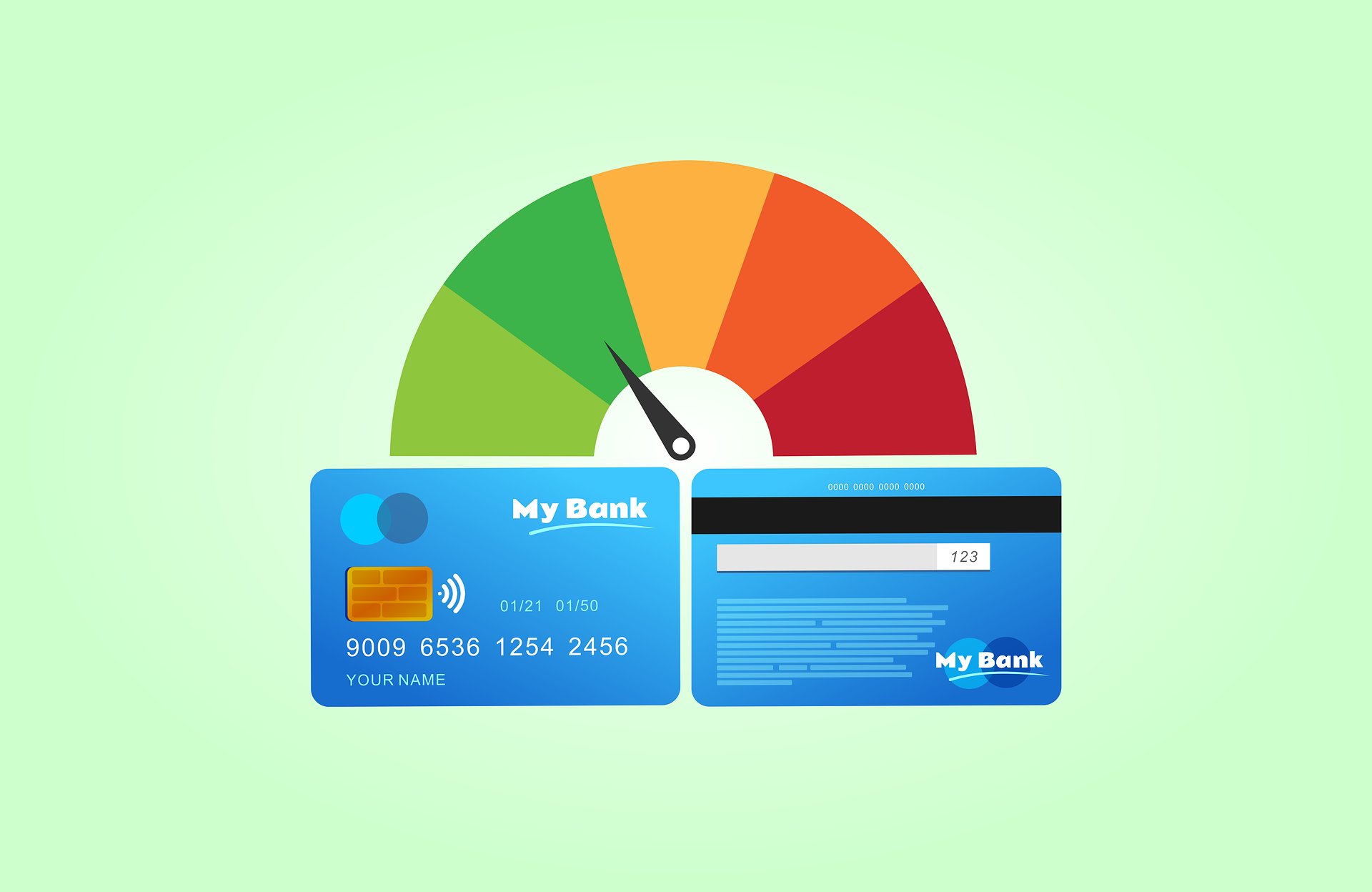Why Stay on Top of Credit Score History?
The credit score is a simple 3-digit number, which affects many financial aspects of your life.A good credit score comes from a good credit score history, which is massively helpful for individuals in achieving several financial goals.
This can include renting an apartment, getting insurance, buying a car, or signing up for a mortgage for the first time. However, maintaining a good credit score is not for everyone.
Many people do not know what a credit score is, or what counts as a good one. We are going to talk all there is to know about credit scores, what counts as a good one, and the factors that can impact your overall credit score.
What is a Credit Score?
A credit score is a three-digit number ranging from 300 to 850, representing your likeness of returning borrowed money. Calculating the credit amount depends on multiple factors including your bank account details, transaction frequency, and others.
All this data comes directly from credit reporting companies that keep an eye on the credit score history of individuals. While several organizations compile the credit reports, the following are the most common ones.
- Equifax
- Experian
- TransUnion.
These organizations collect your credit score history, chances of late payments, number of on-time payments, and the average time to repay a loan to create your score. The behavior of borrowers differs, which is why the credit score has a range. Following are the details for credit score.
| S.no | Score Range | Credit Score Status |
| 720 or Higher | Excellent | |
| 690 and 719 | Good credit | |
| 630 to 689 | Fair Credit score | |
| 629 and lower | Poor Credit score |
The income of an individual and their corresponding debts also play an essential part in determining credit scores.
Reason to Stay on Top of Credit Score History
People can survive with a bad credit score history. However, it has a huge impact on the quality of life you can afford. It will impact everything from your mortgage rates, to your insurance charges.
It is a major reason p why people try their level best to maintain a good credit score. Following are some reasons to maintain your credit score.
Low-Interest Rates
Interest is one of the biggest expenses for individuals in the U.S. This is mainly because people do not have the buying power to purchase things in cash. People need to rely on taking things on credit in exchange for interest rates.
However, these interest rates can become quite high in the long run. Having a good credit score will help you in the process of taking loans. You will not only have to pay a lower interest rate but will also qualify for almost any loan you need. For instance, you could apply for a residential loan, or a home purchase loan.
A good credit score history will help reduce the amount you have to pay for a car loan or insurance.It will not only save your money but help you repay your loan faster with easier payments. You can use all the money you save on interest rates to buy other essentials.
Easier Loan Qualification
Most people with poor credit scores avoid applying for any sort of loan because their application gets rejected in the beginning. These people have already been turned down for loans in the past, and know they will not qualify again.
While having an excellent credit score history does not guarantee a positive response from lenders, it increases the chances of getting a loan. However, keep in mind lenders will still assess your income and debts to determine if they can lend you an amount.
Needless to say, a positive credit score will increase your chances of getting a loan, boosting your confidence when applying. You can apply for whatever loans you want for lower interest rates, and purchase without any complications.
Better Negotiation Rights
Most lenders have a straightforward interest rate, which a borrower with a fair credit score needs to accept. They do not have many options. However, an excellent credit score allows these individuals to discuss things with the lenders, and come to a mutual agreement.
You can even request a lower interest rate, or leverage in the payment structure if you have an excellent credit score.
Other negotiation tactics like getting a response from multiple lenders, and presenting the offers during negotiation can also tip things in your favor. However, all these things become irrelevant if you have a poor credit score.
Higher Limit Approval
Income and credit score are the two most important factors while getting a loan. While the income determines your repaying possibility, a good credit score qualifies you for a higher amount. The reason behind this is simple. You have already shown you can pay a loan back on time, which makes you a credible borrower.
Once the lenders assess your credit score history, they will know you are capable of handling bigger loans. Keep in mind that you can still get approval for loans with a lower credit score, but the amount will also be limited. Therefore, it is best to stay on top of your credit score.
Rental House and Apartment Approval
Having a residence is one of the biggest dreams that most people share. However, owning a house in the U.S. is not that simple. This is because the average property rates in the country are quite high. Thus, a large number of people rely on rental houses and apartment loans to move into a better house on rent.
Moreover, credit scores are also an important part of the tenant screening process. The landlord will most likely reject your tenant application if you have a bad credit score. However, tenants with a good credit score history are ideal for landlords. They have a sense of responsibility for returning borrowed money on time. Therefore, landlords will prefer choosing them without any hesitation.
A good credit score also reduces your chances of facing a forceful eviction. You can discuss things with the landlord for a payment period extension. What’s more, you can save time seeking tenant approval, and show your credit score details as proof.
Better Car Insurance Rates
Having car insurance is a must if you want to save yourself from bankruptcy. Auto insurance companies can also use a poor credit score against you. They use your credit score, income, existing debts, and other factors to determine your auto insurance risk score. This represents your chances of making an insurance claim.
The insurance rates are directly proportional to this score. People with lower credit scores have to pay higher premiums and interest rates on their auto insurance policies. The average difference in these amounts can range from a few hundred dollars to thousands of dollars, depending on your vehicle, or your coverage amount.
Either way, maintaining a good credit score history is ideal for keeping your interest rates and anticipated costs lower.A good credit score also gives you the leverage to negotiate on deductible amounts.
Cell phones without Security Deposit
Cell phone providers usually demand a security deposit amount for individuals with a bad credit score. They can even reject your application, or ask you to sign a contract to ensure they stay safe in the long run.
They might even ask you to choose a pay-as-you-go contract, which can often cost more than regular contracts. This can continue as long your credit score stays poor, or you prove yourself as a trustworthy customer.
People with a good credit score, on the other hand, do not have to pay a security deposit and can qualify for a cell phone without any trouble. Additionally, a good credit score history can also help individuals get a discounted price on their contracts.
No Security Deposit on Utilities

Security deposits usually begin from $200 and are a big issue especially if you move to a new location. Several owners need to pay unnecessary security deposits for their utilities even when they plan to move to a new location soon.
Most of these people do not get their security amount back. This not only wastes money but also ends up costing homeowners more than they originally guess.
However, individuals with excellent credit scores do not need to worry about paying utility security deposits. They can simply apply for utility systems directly, pay for them, and leave. This also helps people who want to transfer the utility services to another location.
Bragging Rights
A good credit score represents financial discipline and promotes self-confidence.It is good to explain your credit score status to concerned authorities when you want something.
Credit Score History: What Affects Credit Scores?
Individuals who wish to maintain a good credit score must know the best practices and factors that determine a good credit score.
Mentioned below are some ground factors that help authorities determine your financial credibility. Focusing on these individual factors makes it much easier for borrowers to maintain a good credit score history.
Payment History
Your payment history is the biggest factor when it comes to determining your credit score. A single missed payment can drop your credit score significantly.
This is because lenders need to ensure you stay disciplined with your repayments, and avoid providing any leverages unless you already have a good credit score.
The payment history determines around 30% of your interest rates, which over 90% of the lenders use to judge your repayment habits.
Amount Owed
Your existing credit amounts are another important factor that helps determine if you can stay on top of your credit score history. Experts use your credit utilization as a standard to determine this amount. It is calculated by deciding the ratio between your revolving credit and the credit limits you currently have.
Individuals with a higher credit utilization ratio have a poor credit score, and vice versa. As a general rule of thumb, always remember that utilizing more than 30% of your credit limits will create a negative impact on the creditors.It also plays an important part in your FICO Score.
Credit History Length
The credit history length determines the average life of your accounts and determines around 15% of the FICO score. It includes the age of your oldest credit account, compared with your latest credit account. Therefore, credit account owners with a higher credit history length have a higher credit score as well.
Credit Mix
Most people have different credit and premiums to pay, which creates a diverse credit portfolio. Credit score calculators consider all accounts while calculating your credit score.
This will also assess your repayment performance with each account in the portfolio. You will get a higher credit score if you have a good average repayment ratio. These credit mix scores determine around 10% of your total score rating.
New Credit Accounts
The number of credit accounts by an individual is also another great factor in your credit score history. More new credit accounts indicate that individuals are not good with their repayments. This also indicates a higher risk, which damages your existing credit score.The new credit account ratio also qualifies for 10% of your FICO score.
Credit Score History: Bottom Line
Staying on top of your credit card history requires staying vigilant with almost every area of your financial payments. Having a good credit score can help you get tons of benefits like avoiding security deposits, getting lower insurance rates, easier qualification for the higher loan amount, higher credibility, and much more.
However, it is not easy to maintain good credit scores as professionals consider factors like new credit accounts, credit mix, credit history length, payment history, etc. We suggest you focus on these factors individually to stay on top of your credit score history in the long run. It is best to consult with professionals to help you with this process.






